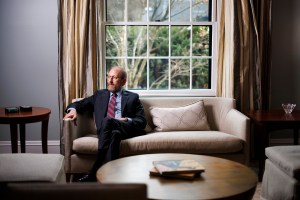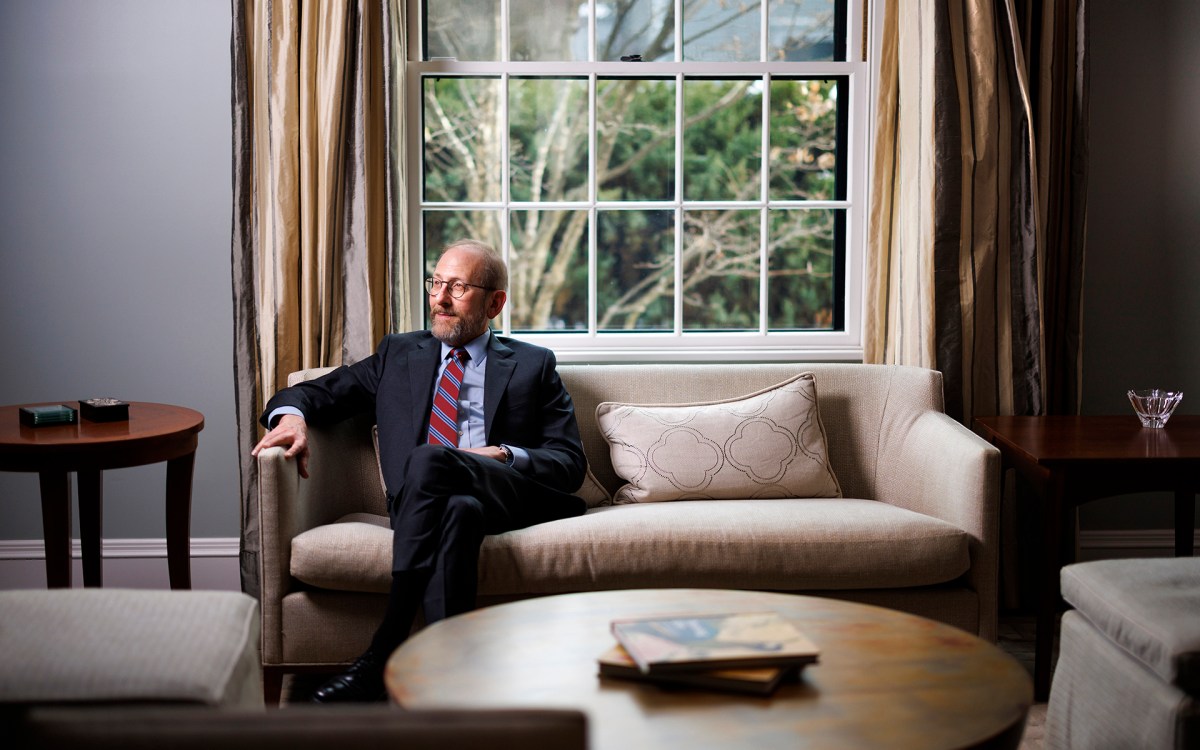The road less traveled
Peter Brooks chooses to serve and protect
At first glance, Peter Brooks’ story sounds stereotypical: Like his two older brothers, he attended Philips Exeter Academy, then continued on to Harvard, following in the footsteps not only of his brothers, but also his father, grandfathers, great-grandfathers, and five uncles. “Just a normal white preppy from Massachusetts,” he says.
But in a twist that came as “a bit of a shock” to his family – who had envisioned him becoming a doctor – in his freshman year Brooks joined the Navy ROTC. “When 9/11 happened my senior year of high school,” he says, “I realized public service was important to me. It was also a way for me to prove myself, to relate to larger strata of society that I wouldn’t necessarily run into at Exeter or Harvard.” Two years into his training, he switched to Marine ROTC because the Navy focused on the engineering and maintenance of ships, whereas Brooks “realized I wanted to be more involved with people and the leadership and mentorship of young Marines, as well as to get real-world experience at a young age.”
Since that decision and even before it, Brooks has been an exemplar of leadership in every aspect of his life. In high school he was on the U.S. Junior National Rowing Team, and at Harvard he stroked the first freshman heavyweight crew, which won third place in the nationals. He continued as a member of the Harvard heavyweight crew until junior year, when he switched to the Marines and found that 12 workouts a week was “difficult to sustain.”
Brooks’ 104-page thesis, on organizational behavior and military innovation, was awarded a Magna Cum Laude Plus and called a “superior piece of work” by one of the grading professors. Unusual for a thesis on the military, it was nominated for a Hoopes Prize, which is given for outstanding scholarly work or research from an undergraduate. And Stephen Rosen, master of Winthrop House, called him a “perfect gentleman” who is a “wonderful and caring friend” to all students, but particularly those going through difficult times.
As battalion leader of the Boston NROTC Consortium’s Old Ironsides Battalion, which consists of Harvard, the Massachusetts Institute of Technology, and Tufts students, Brooks is in charge of about 70 Navy midshipmen. “Peter is a true mentor,” says Navy Capt. Robert D. Holland, Brooks’ commanding officer, “not just a leader. A leader can tell people what to do but a mentor will actually help them to succeed. He is just a fantastic young man.”
And a busy one. In addition to a full Harvard College course load, Brooks takes one ROTC course a semester and has four meetings a week with Holland and other staff members to plan the weekly “ops.” He must wear his uniform on campus at least once a week, and though he feels supported by the Harvard community, he admits, “It’s kind of odd to be the only one dressed that way.” On the other hand, he says, “every now and then you’ll be walking along and a stranger will thank you. It doesn’t happen often, but it’s nice when it does.”
Within about a year Brooks will be deployed with a platoon that should take him “somewhere sandy, and it won’t be Bermuda.” But he will be as prepared as anyone can be for active duty in Iraq or Afghanistan: In addition to his four years of ROTC and a grueling six-week boot camp in Quantico, Va. – which Holland calls a “mecca” where “Marine-officer wannabes from all over the country go to prove their mettle” – Brooks will return to Quantico for nine months of officer training. And then there’s his own personal training ground, the Boston Marathon, which he completed in 4:02 after deciding to run only a week before the event.
“It was another rite of passage,” he says, “another thing I could prove for myself. Now that I know I can endure 26 miles unprepared means I’m ready to face more challenging events.” Somehow one feels a little safer knowing Brooks is up for the challenge.




